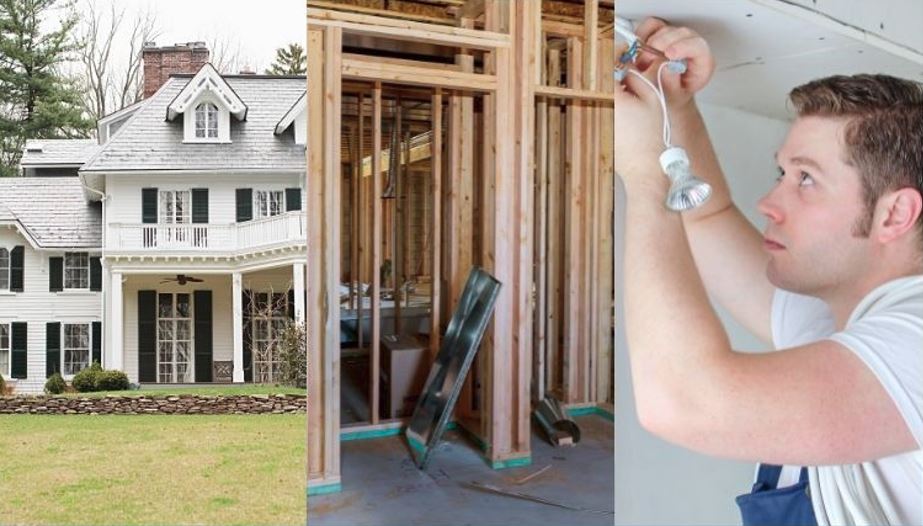
The basement is an integral part of a home that serves a wide range of purposes. The purpose of building a basement varies from owner to owner based on the surrounding terrain, the house type, the environment, and family desires.
In addition, a basement is an ideal location for homeowners to create a livable space or one that is more focused on storage. It also serves as a safe haven in different regions of the United States, especially those with intense weather conditions.
Although basements offer various advantages, they have an unfortunate reputation for being damp, dank, and dark. The problem is true for unfinished basements and not necessarily the case for finished ones.
There are many factors to consider when building your finished basement, such as piping, wiring, mechanical systems, etc. When you carry out the job properly and avoid the following mistakes, you can turn the basement into a valuable addition to your home.
Not Considering Moisture Issues
Not focusing on moisture issues is one of the biggest mistakes homeowners make because it can cause damage to your home through leaks, mold, material damage, and cracks in the foundation and walls.
Therefore, it is crucial to focus on mitigating the moisture issue when you finish the basement. Hire a professional to repair structural damages and water leaks. The purpose is to waterproof vulnerable areas to maintain the basement’s integrity.
Are You Planning to Finish Your Basement? We Can Help!
Contact Us Now for a Free Quote!
Ignoring the Floor Plan
Experts recommend considering the finished basement’s design and floor plan to streamline the process. Renovating your basement requires considering pipes, electrical wiring, the water heater, sump pump, furnace, and other equipment, depending on how you want to use the space.
A poor design and floor plan can cause a dysfunctional layout and affect the overall structural integrity of your basement. Therefore, we suggest consulting an experienced contractor to develop a sophisticated floor space to achieve your goals and make your basement a more livable and usable space.
A solid design or plan is essential for a finished basement. Otherwise, you will end up blocking valves and instruments. When planning out the basement, consider electrical outlets to ensure easy access to essential shutoffs and equipment.
Closed Basement vs Walk-Out Basement: What’s the Difference?
Not Installing a Separate Thermostat
When you start building the finished basement, make sure you have a good plan in place for managing the basement’s temperature. Keep in mind that temperature levels are different in the basement than in rooms above the ground.
Therefore, installing a separate thermostat for your basement with its own baseboard heaters or heating and cooling registers will maintain optimal temperature levels in the livable or storage space.
Check out our article about how to choose a house plan when building a new home.
Not Repairing Windows
Not repairing or maintaining windows is another critical task homeowners usually ignore. Therefore, it is crucial to inspect current windows for proper frames, structure, and seals. If the issues are irreparable, we recommend replacing the windows.
That way, you can prevent potential moisture problems and mitigate the risk of cooling and heating loss from the basement. Consider the building code when installing large windows for a livable environment.
Disregarding the Stairs
Most homeowners disregard the stairs to the basement, causing various complications, including safety issues. For example, if you have too narrow, too steep, damaged, old, or unsafe stairs, make sure you replace them with newer and safer ones.
Adding stairs to your finished basement allows you to widen the area and increase the headroom. That way, you can make the space more inviting and safer to use for everyone in your home.
For example, adding and improving the stairs is an essential step if you convert your basement into a leisure room for your children or family to enjoy, such as a video game playing room or a home theatre where people coming downstairs may be descending into a dimly lit space. It improves the room’s tone and increases the space’s safety.
Not Focusing on Sound Insulation
Basements are the noisiest areas in homes due to mechanicals for the house that run through the space. Therefore, sound insulation is crucial, especially if you want to turn your basement into a livable space.
When building your finished basement, incorporating soundproofing can reduce noise and keep your family comfortable whether they are in the basement or upstairs. The simplest and most cost-effective sound method of soundproofing in your basement is to install insulation in your basement’s ceiling or floor joists.
Experts recommend an R-factor of 19 insulation for basement soundproofing, creating a barrier by absorbing noise between the basement and the main floor. You can also install double layers of the drywall for effective sound dampening.
Poor Planning for Natural Lighting
Even if you have windows in your basement, you may not receive enough natural light, making the space dark and uninviting. So, this can reduce the basement’s usability. Therefore, it is crucial not to ignore lighting when building your finished basement.
When your basement has adequate lighting, it will make a massive difference to brighten and lighten the entire atmosphere. There are numerous ways to bring natural light into the basement.
For example, you can install a solar tube to feed natural light into your basement. Make sure you place the tube on the exterior wall because it has a series of mirrors that allow the natural light to travel and illuminate dark areas in your basement.
Moreover, you can install light wells to bring natural light into your basement. You can use small windows or full-sized light wells and place them on the exterior walls to get sunlight throughout the day. That way, you can flood your basement with natural sunlight during the day.
Final Words
Having a finished basement provides you with additional storage space without compromising on the indoor and outdoor space in your home. However, you must avoid the common mistakes given above when building your finished basement.
That way, you can prevent damage to your basement and make it a more livable and enjoyable space for the entire family. We recommend working with a reputable home renovation or improvement contractor with experience in building finished basements.
The purpose is to carry out the project adequately without breaking the bank. Thus, you will end up with a gorgeous livable space with increased usability. So, avoid these mistakes and follow the tips given in this post to protect your investment.

